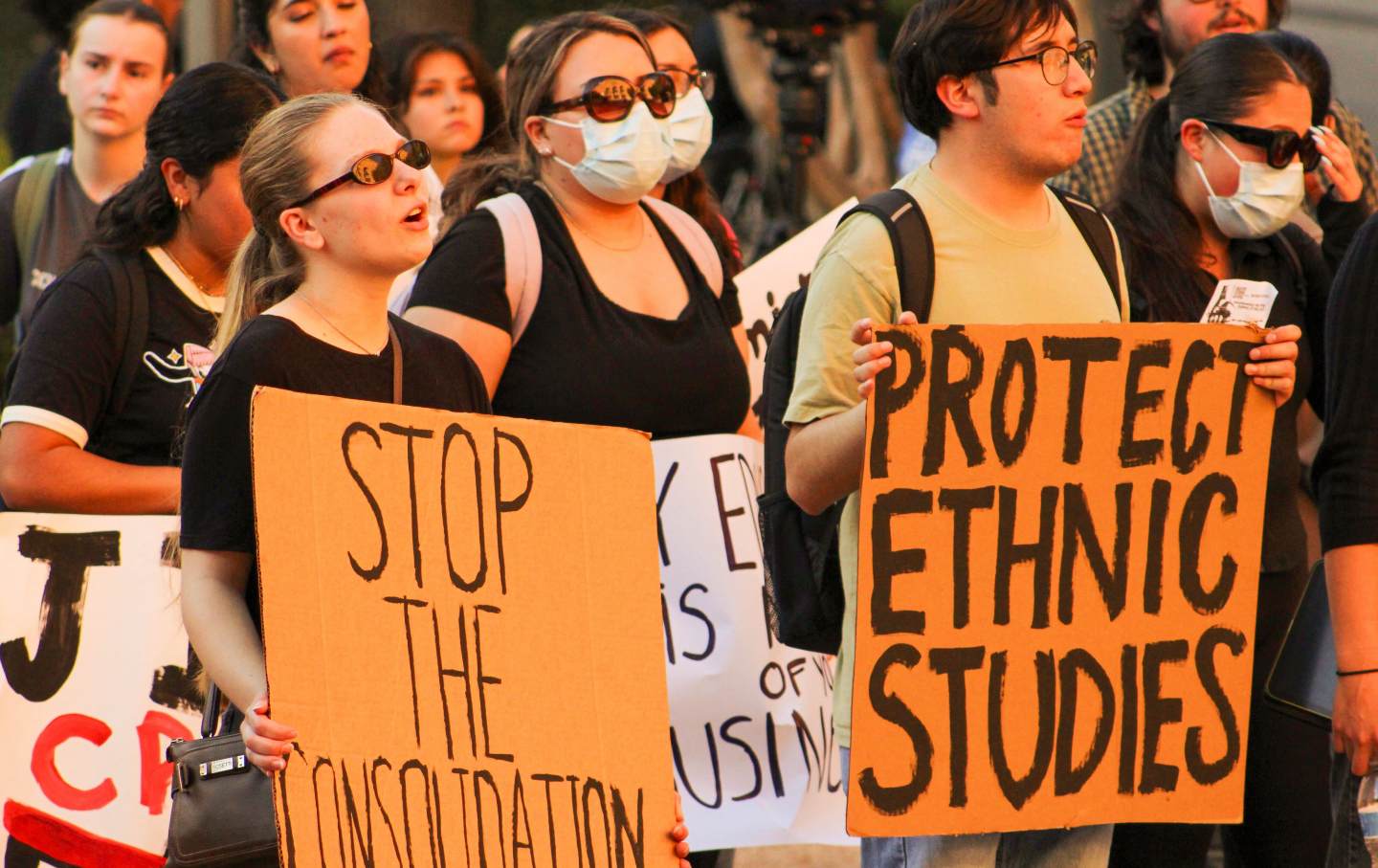The Origins of Race Reductionism
Today’s conversation around inequality traces back to the compromises made in the late civil rights movement.

The landmark civil rights victories of the mid-1960s—the Civil Rights Act of 1964, the Voting Rights Act of 1965, and the Fair Housing Act of 1968—profoundly altered the character and trajectory of Black American political life. They set the stage for the end of the regime of Jim Crow segregation in the South, the rise of Black-led governance in cities across the nation, and the incorporation of Black Americans into the highest reaches of Democratic Party leadership—all the way up to the presidency. They led to expanded structures of opportunity and upward mobility for Black Americans, including access to upper-status occupations that had previously been nearly unattainable.
However, as the current century has unfolded, the dominant tendency in the discussion of Black politics has not only dismissed those victories but insisted that slavery and Jim Crow segregation remain singularly definitive of the status of Blacks in American society. This nothing-has-changed view is exhorted through talk of reparations, calls to understand mass incarceration as a “new Jim Crow,” the hype of the 1619 Project, and the posture of Afropessimism.
What are the sources and implications of this denial of more than half a century of important Black political development? The answer is that they express a class-skewed political tendency, the origins of which go back to the middle of the last century. In my previous column, I recounted how, between the late 1950s and the mid-’60s, economic inequality was separated from political economy and reinvented as “poverty”—an ultimately cultural category. Similar dynamics separated racial inequality in employment from capitalist economic relations, instead interpreting it as stemming, often ambiguously, from either discrimination, cultural deficits, or both.
These developments changed the conversation about inequality in America. In earlier columns, I discussed the forgotten history that preceded this turning point, when advocates for racial justice called for universally redistributive policies and a commitment to a full-employment economy. During that period, the civil rights agenda accommodated a broader, Cold War–influenced withdrawal from political economy. Just as the transformation of economic inequality into poverty came to a head in debates over shaping the War on Poverty, retreat on the civil rights front was institutionalized in the very language in which fair employment was codified in Title VII of the 1964 Civil Rights Act, which effectively defined discrimination as the sole addressable source of inequality in Black employment.
Even then, A. Philip Randolph, Walter Reuther, and others argued that because much Black unemployment and underemployment resulted from structural economic shifts, combating discrimination alone would not adequately address these disparities. As Randolph stated at the 1963 March on Washington for Jobs and Freedom, “Yes, we want a Fair Employment Practice Act, but what good will it do if profit-generated automation destroys the jobs of millions of workers, black and white?” Yet Black civic and political elites mainly fell into line with the terms in which the legislative victories of the mid-’60s were won; in the end, they found the required trade-offs acceptable. The commitment to racial democracy as unfettered equality of opportunity took priority over a social-democratic attack on the cause of working-class unemployment.
The civil rights establishment had embraced Title VII over a more expansive alternative sponsored by then-Senator Hubert Humphrey. That bill would have located the fair-employment-practices function in the Department of Labor and linked antidiscrimination provisions to general manpower planning and active federal intervention to tighten labor markets, including jobs programs. Like Randolph and Reuther, many Black policy elites preferred the Humphrey bill because they understood the limits of antidiscrimination for addressing Black under- and unemployment. But few were committed enough to focus on fighting for it as an alternative to Title VII. In part, that lack of follow-through reflected a judgment that, as the NAACP lobbyist Clarence Mitchell Jr. opined, passing two major civil rights initiatives in 1964 would be nearly impossible. For most, the Civil Rights Act was primary.
But the underlying assumption—that the expenditure of political capital for the Humphrey bill was impractical—may also have derived from a class-inflected calculation that rendered working-class employment secondary to other items on the civil rights agenda. The National Urban League’s Whitney M. Young Jr., for instance, while indicating his support for the Humphrey bill in principle, argued that linking fair employment legislation to the pursuit of full employment implied that federal antidiscrimination efforts would have to await full employment—a position no one advocated. Young’s view fit with his commitment to equality of opportunity as the baseline of social justice.
Regardless, once Title VII passed, Black interest-group leaders took a proprietary interest in it. That change in orientation, which has encouraged race-reductionist explanations of the inequalities affecting Black people ever since, underscores the fact that politics is a process. Stances, commitments, interests, and alliances—even the publicly recognized and understood nature of groups themselves—evolve within, and partly shape, a matrix of dynamic and changing political opportunity structures. This mundane truth has seldom been recognized with respect to Black politics. Instead, the prevailing interpretation reifies Black people as a singular entity and dehistoricizes their political practice through homogenizing abstractions like the “Black freedom movement” or “Black liberation struggle.”
This perspective cannot conceptualize Black political interests and aspirations as evolving, historically specific products of generative processes, or apprehend the significance of the sea change in the mid-’60s for Black politics. We must wonder why contemporary discussion of Black American political life insists that any meaningful history ended before 1965 and that slavery and Jim Crow mark a timeless truth of Black existence. Could it be that stopping history before 1965 permits today’s race reductionists to pose as if their views were those of insurgent outsiders, advocates of the road not taken, rather than those of the dominant Black political establishment?








